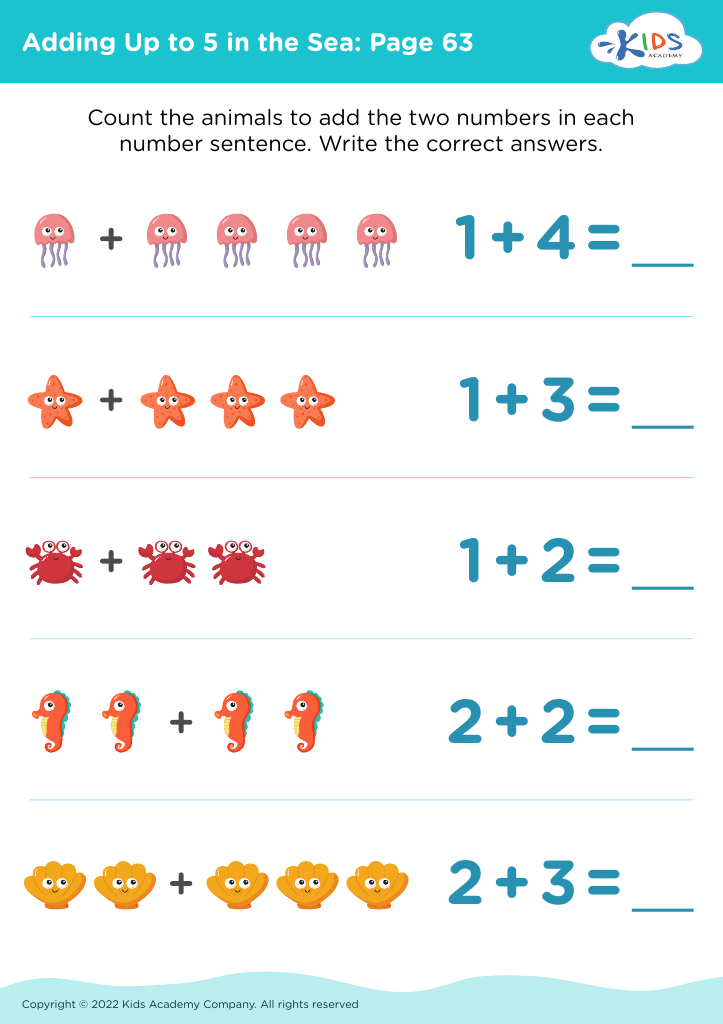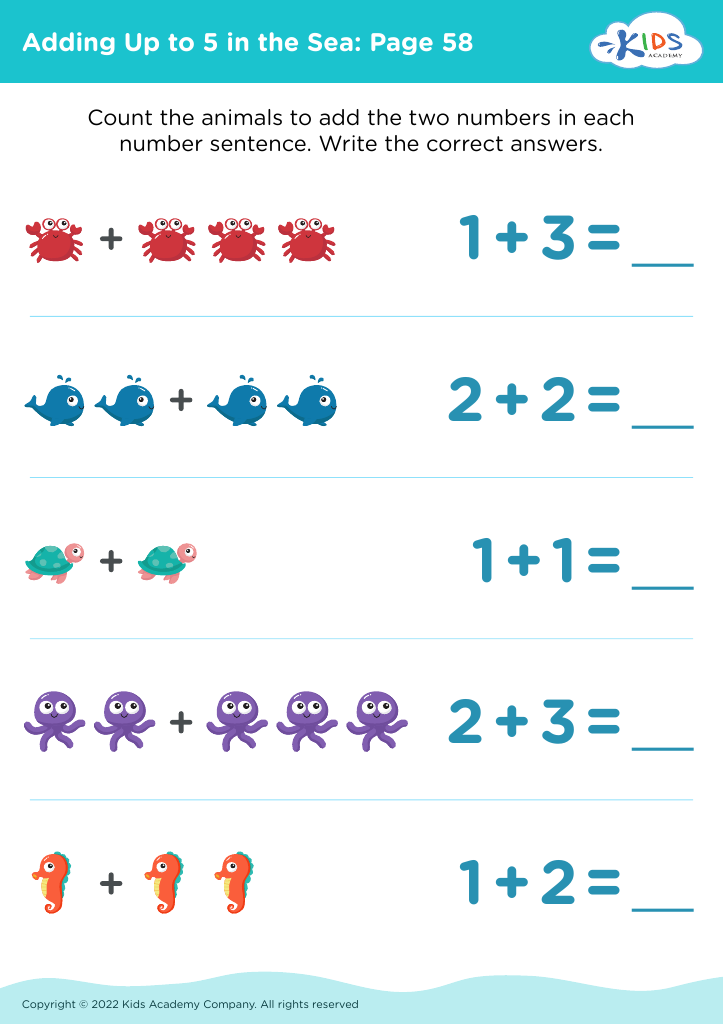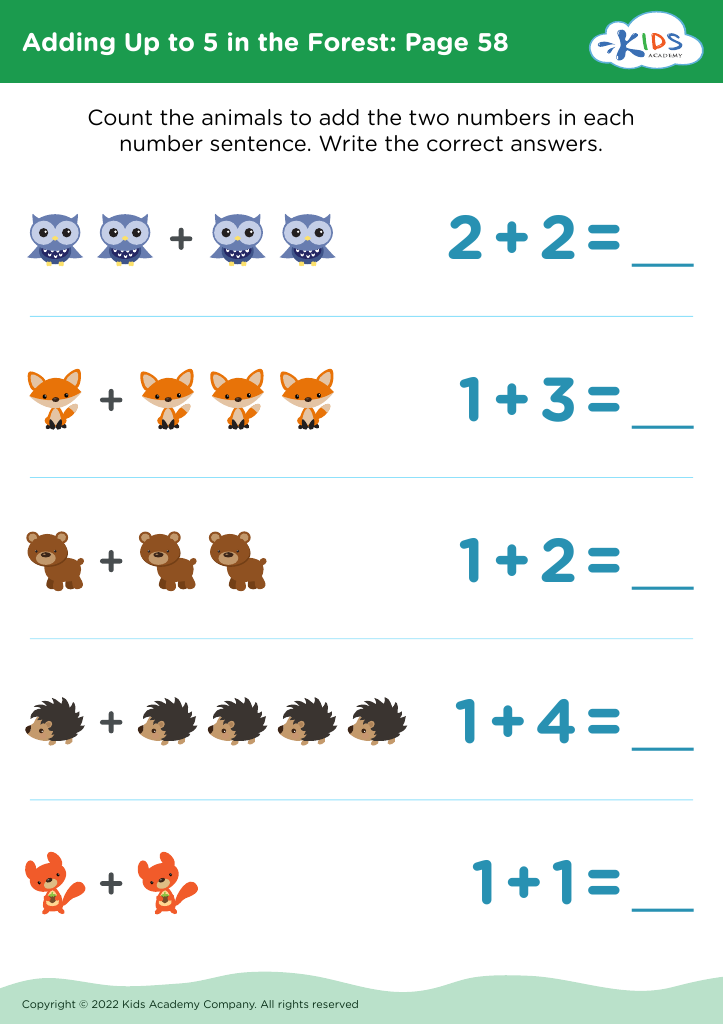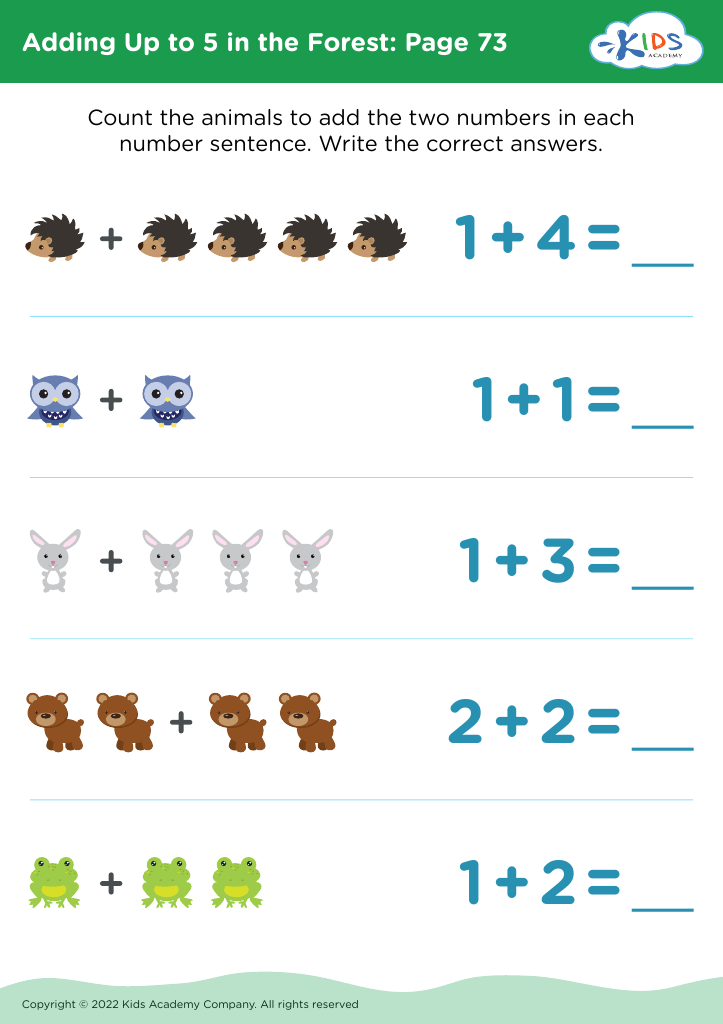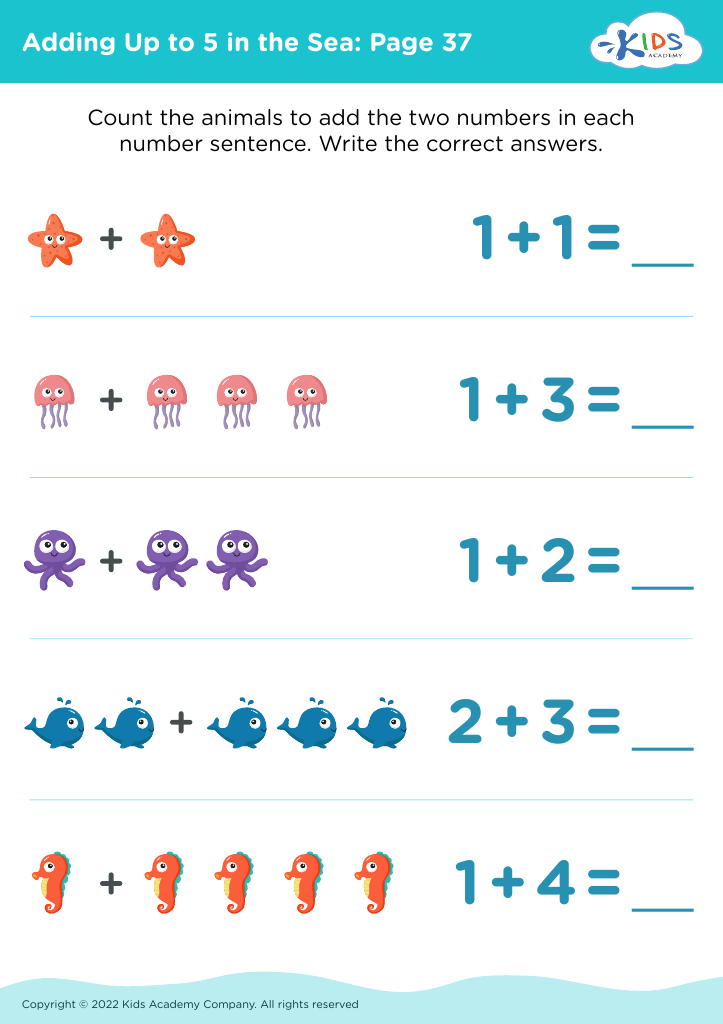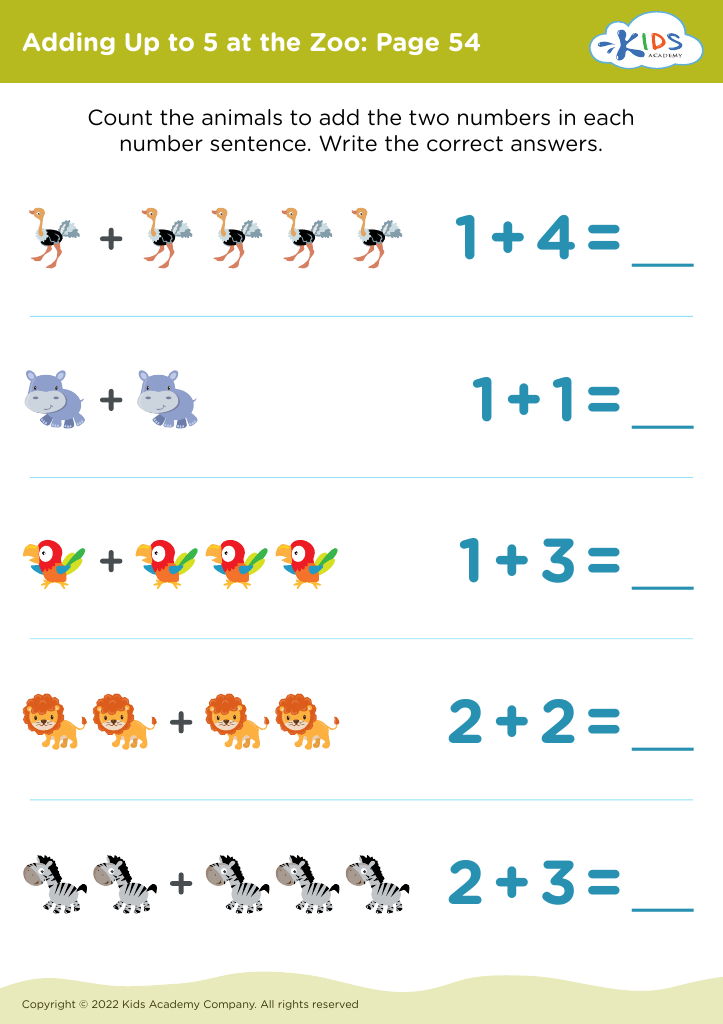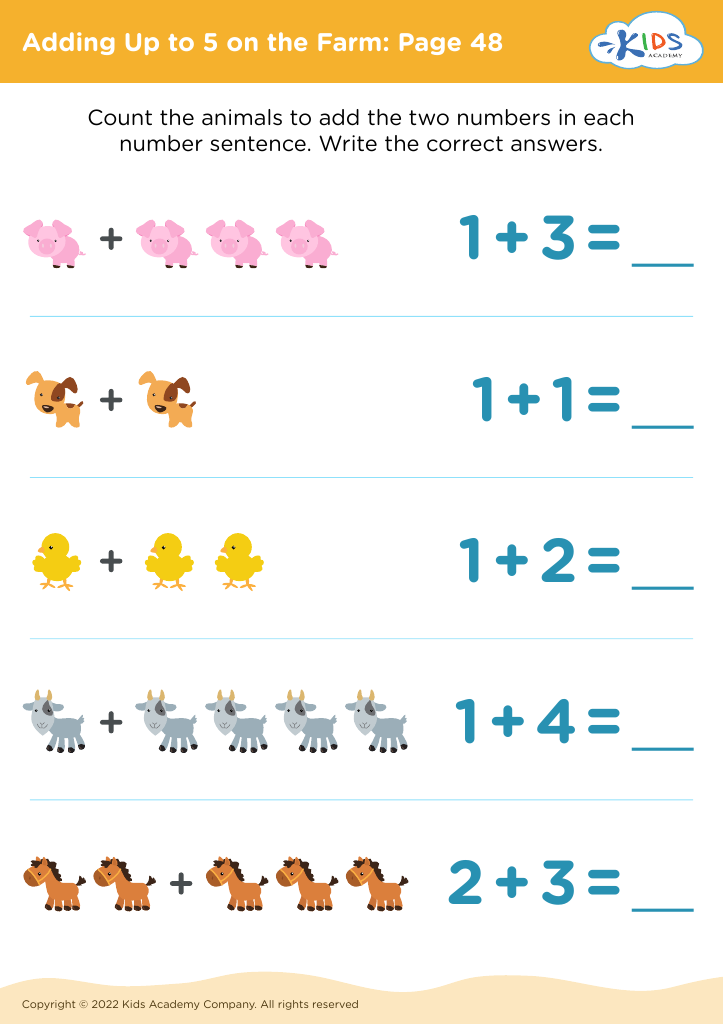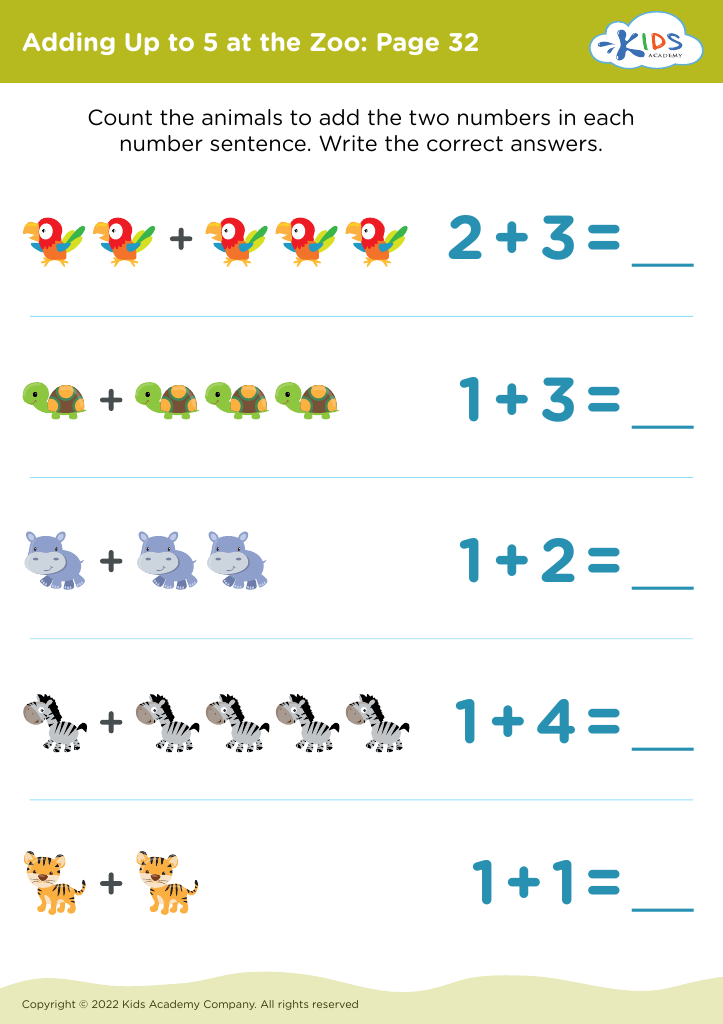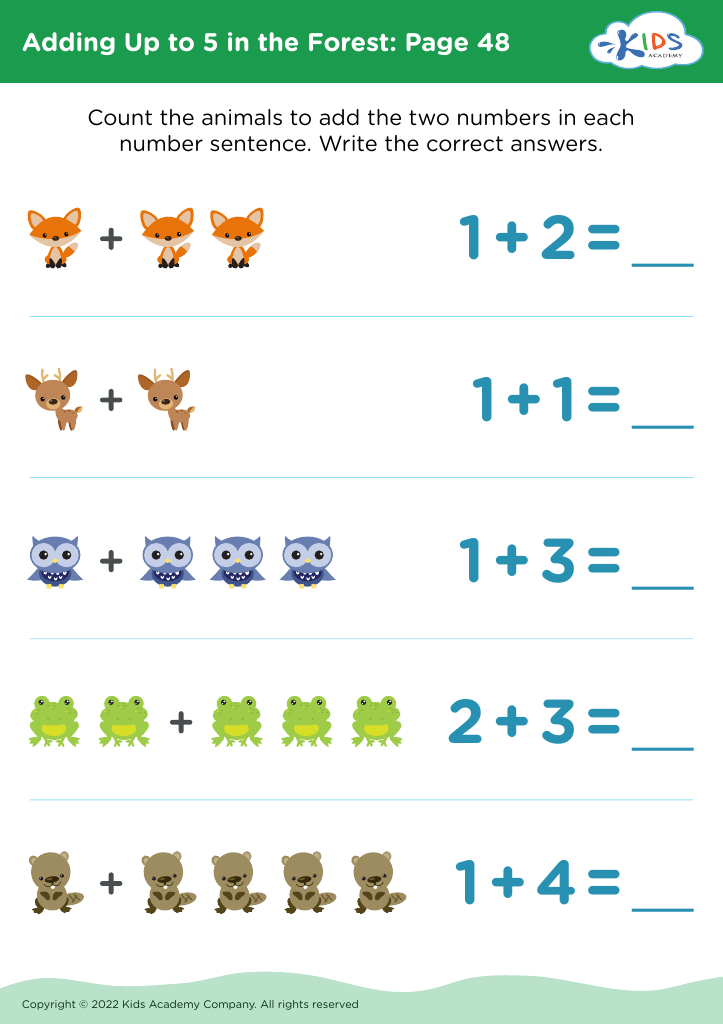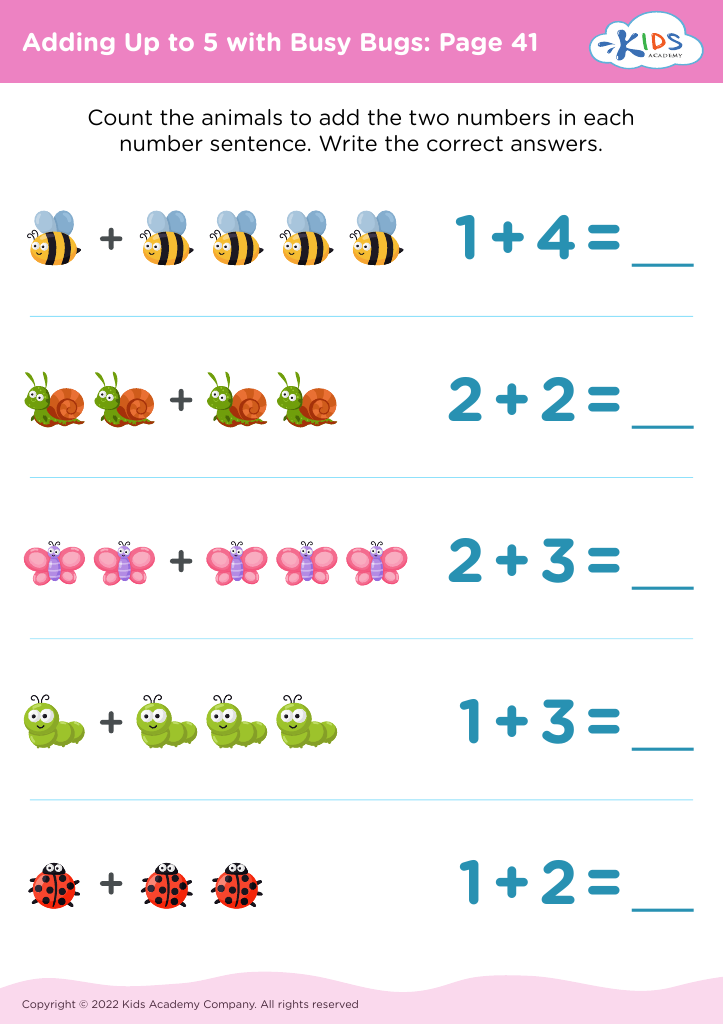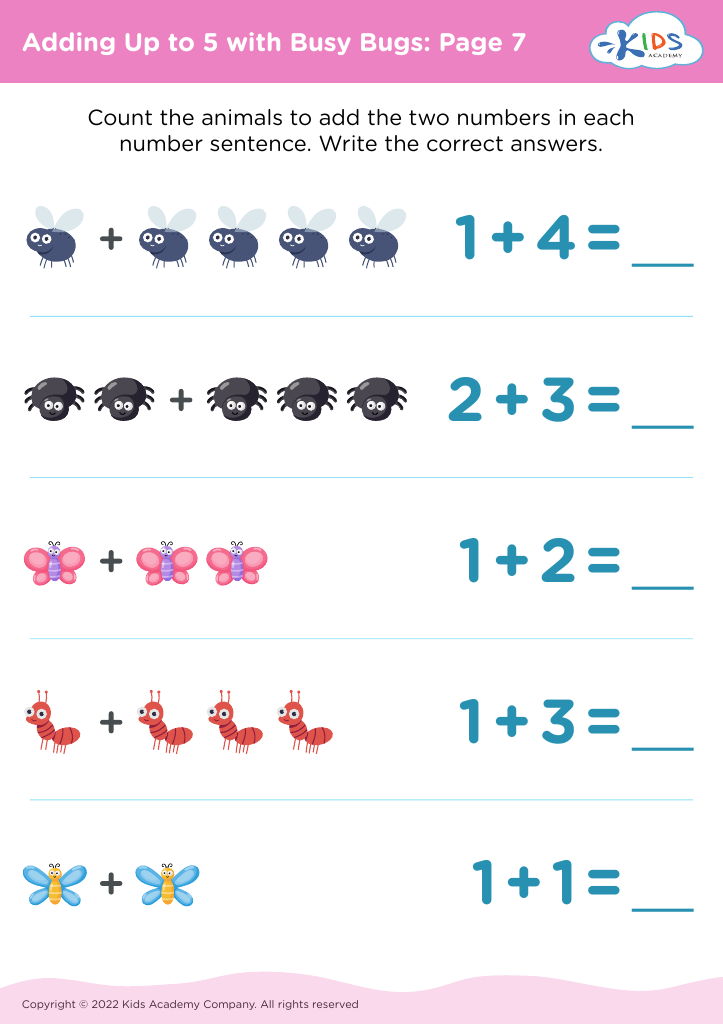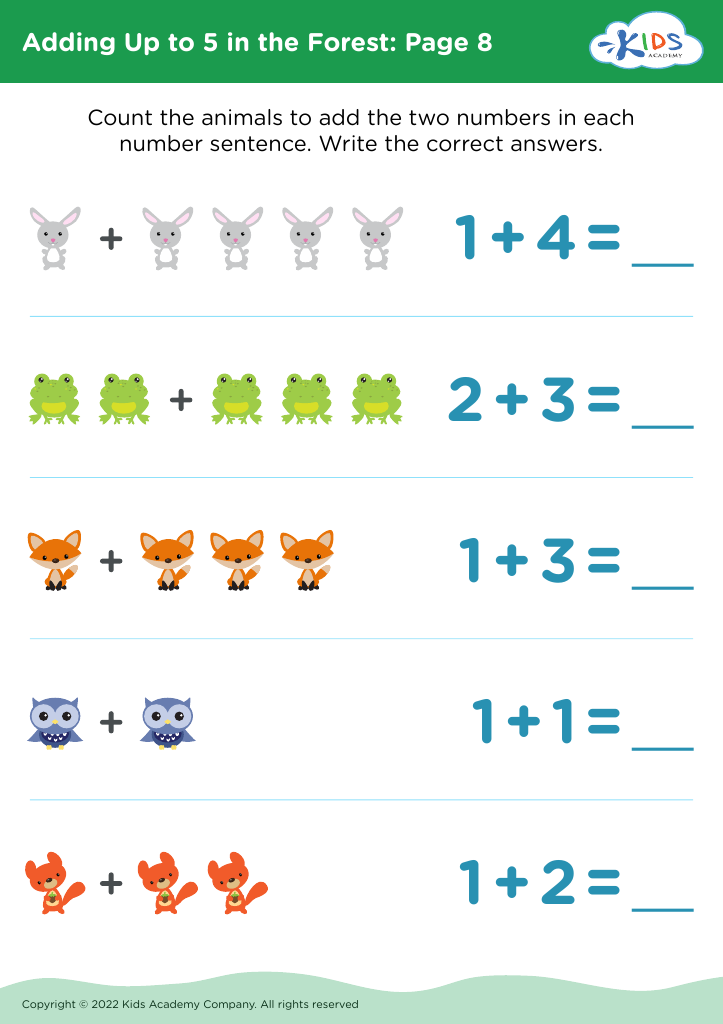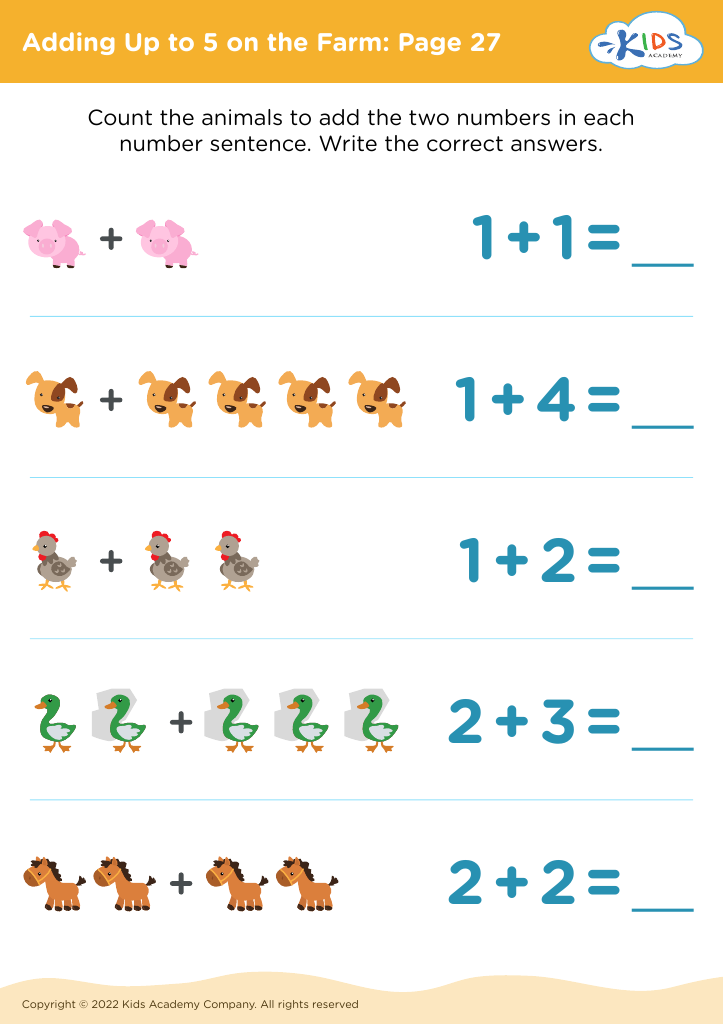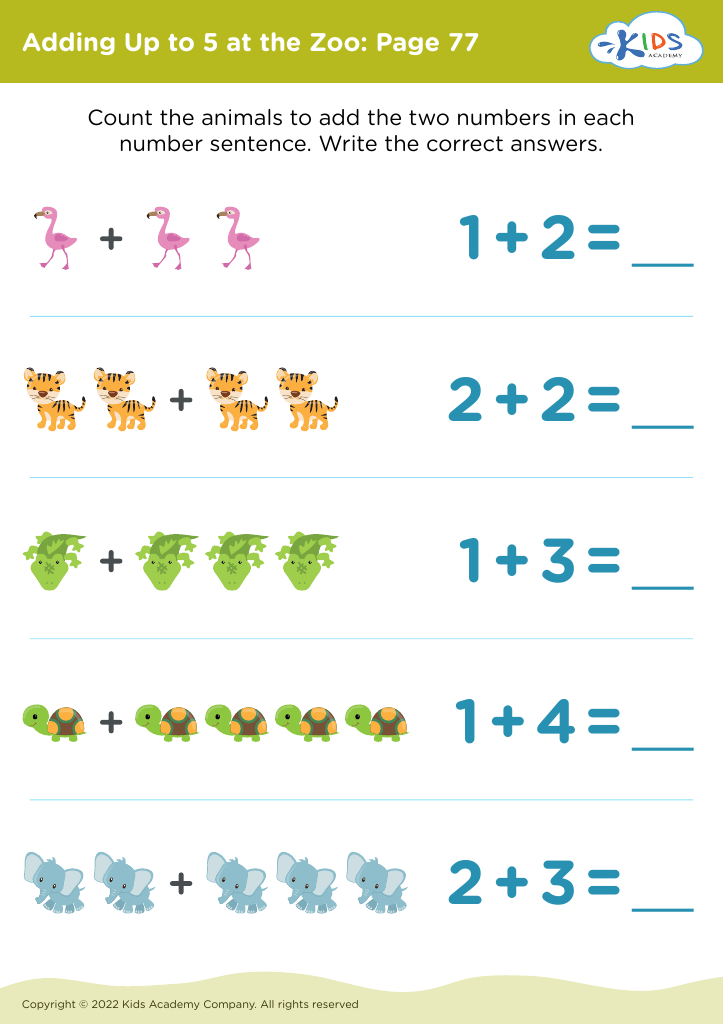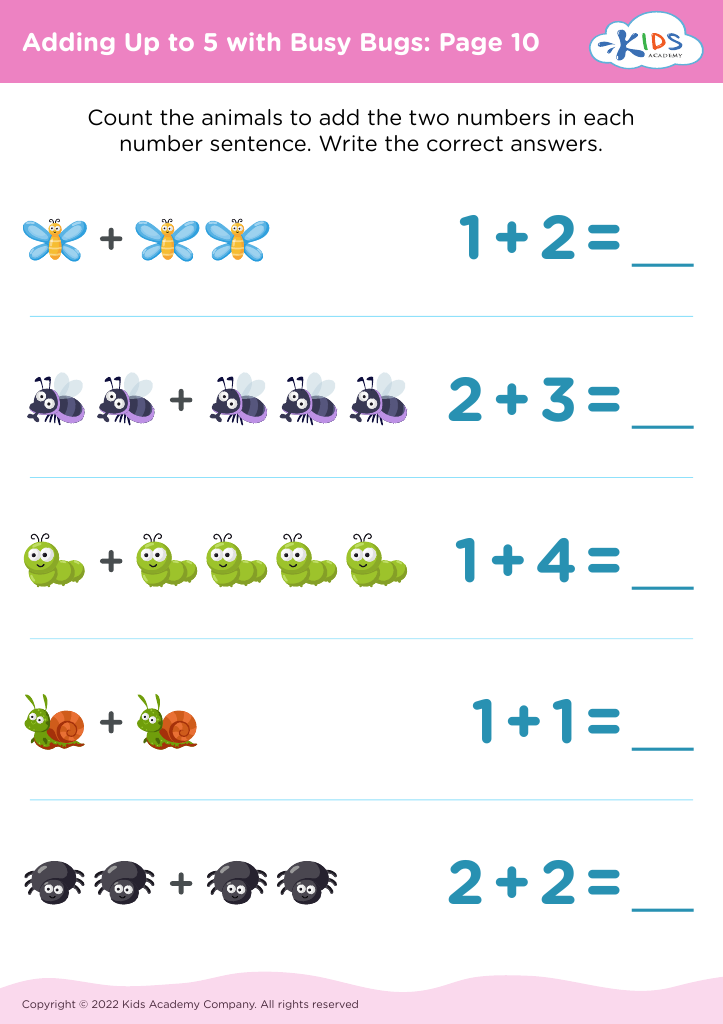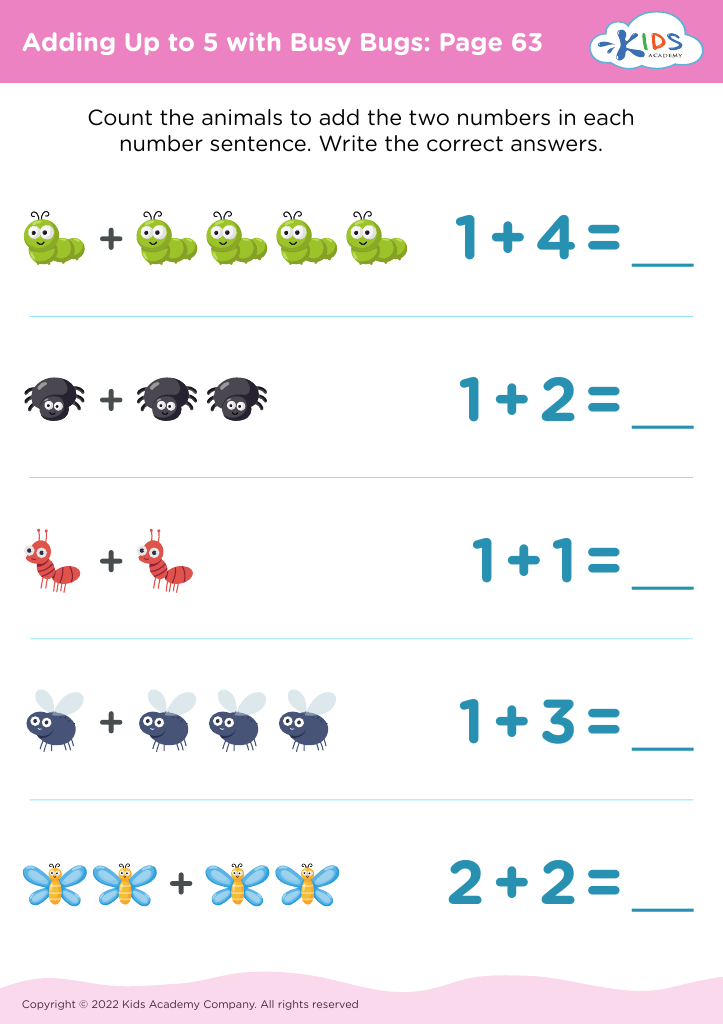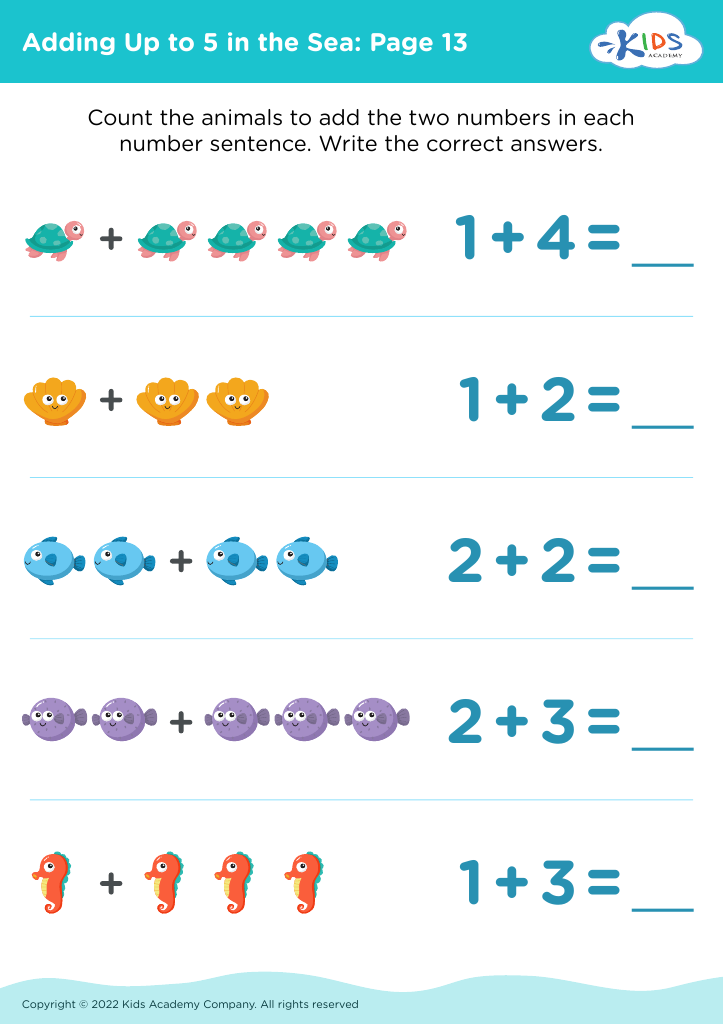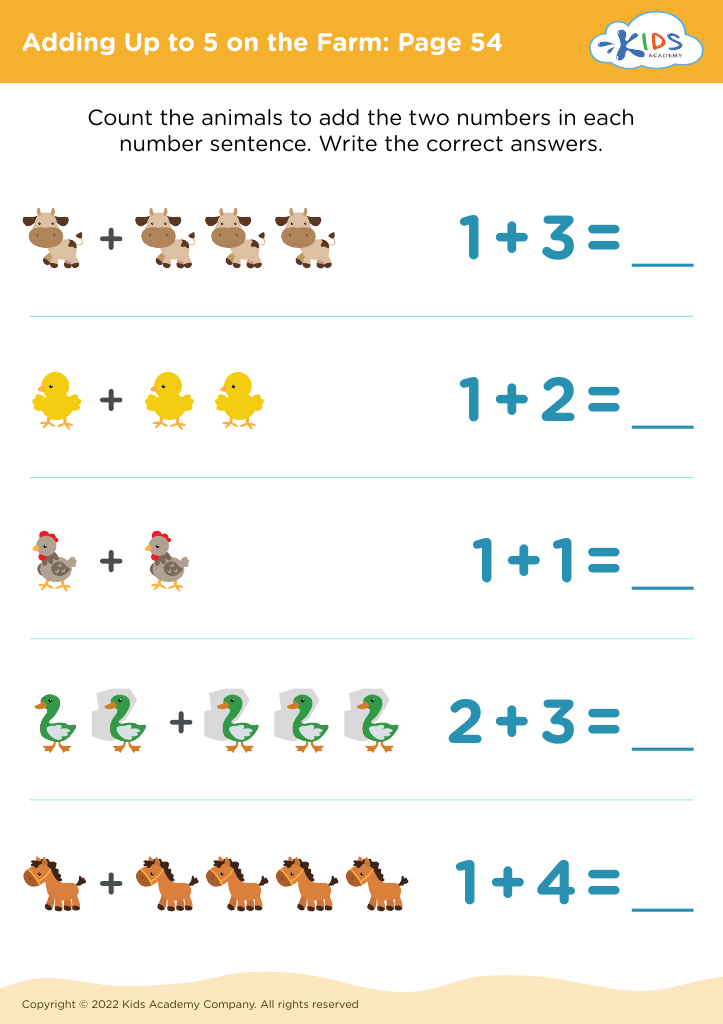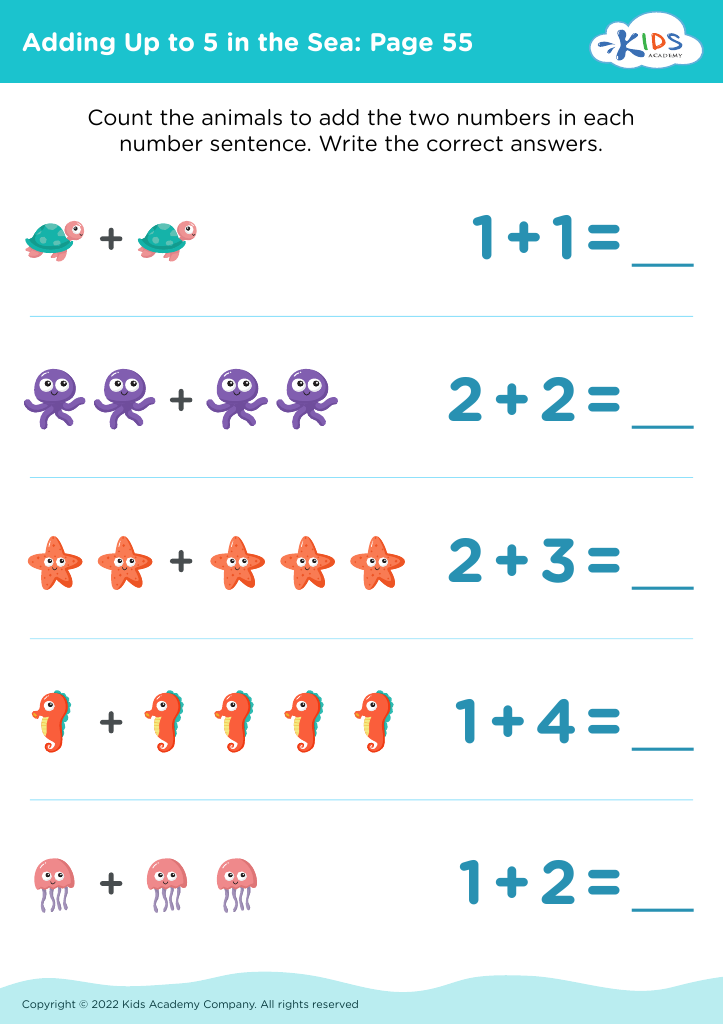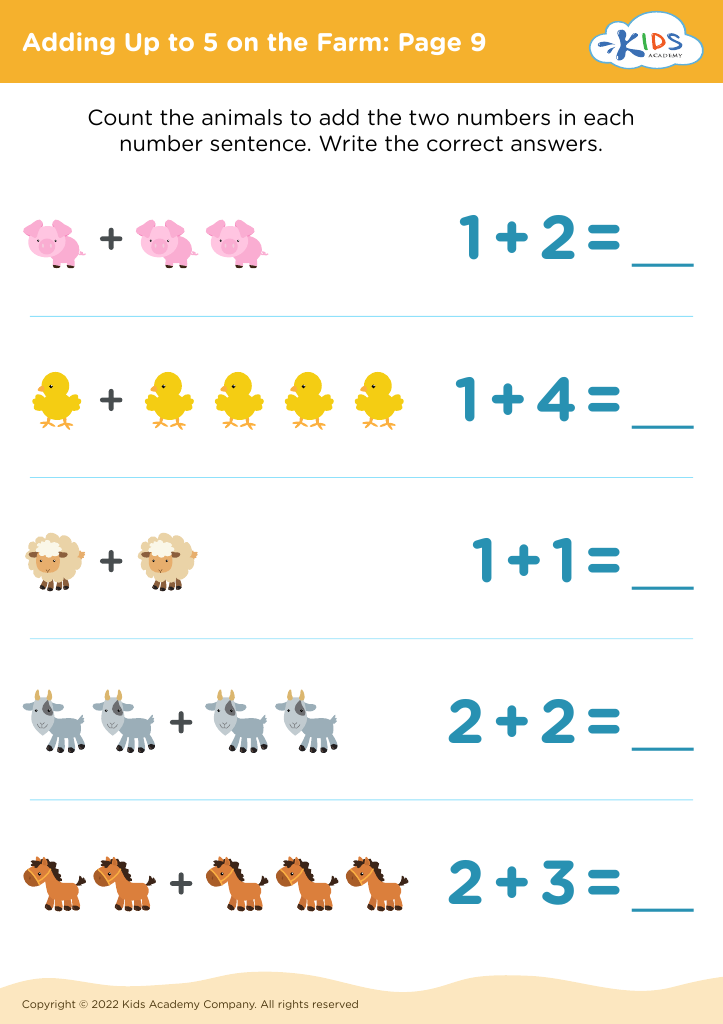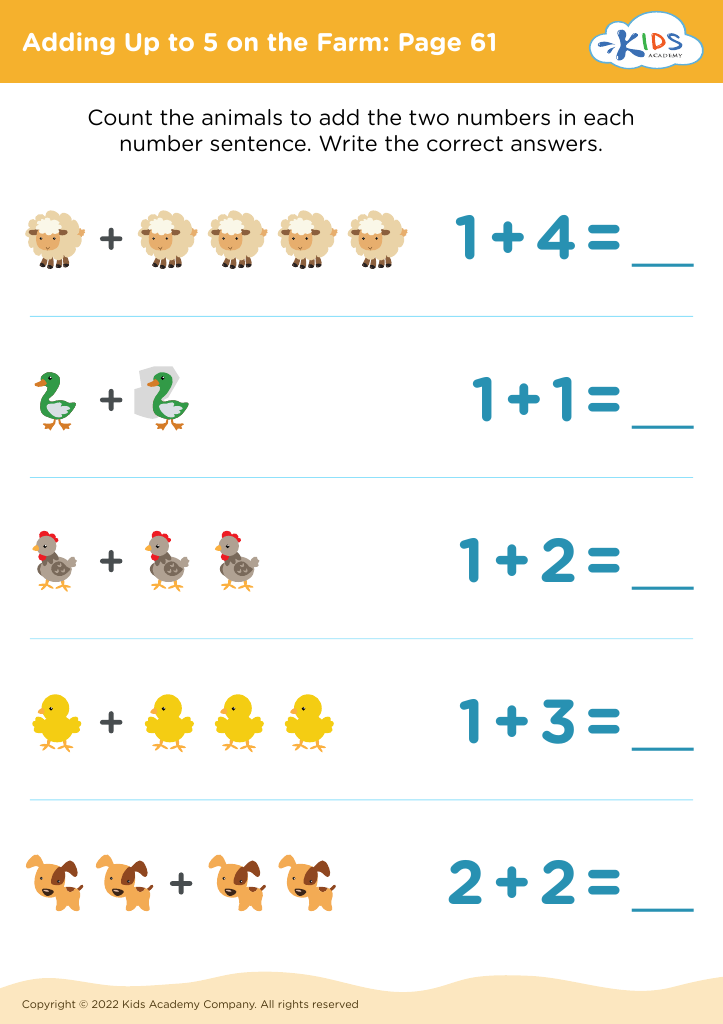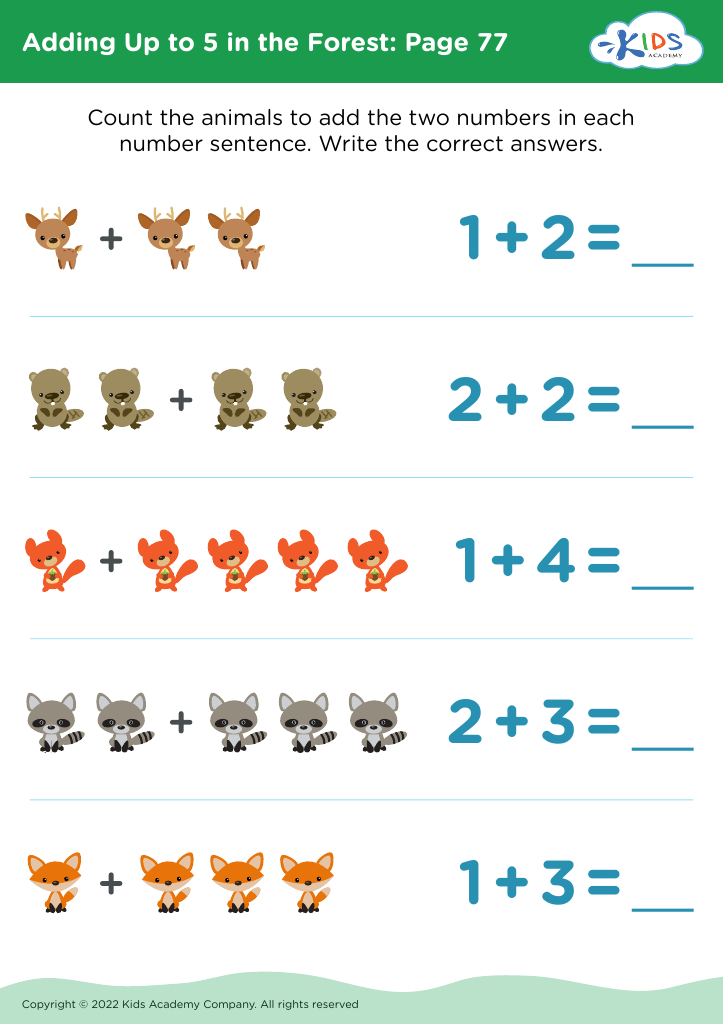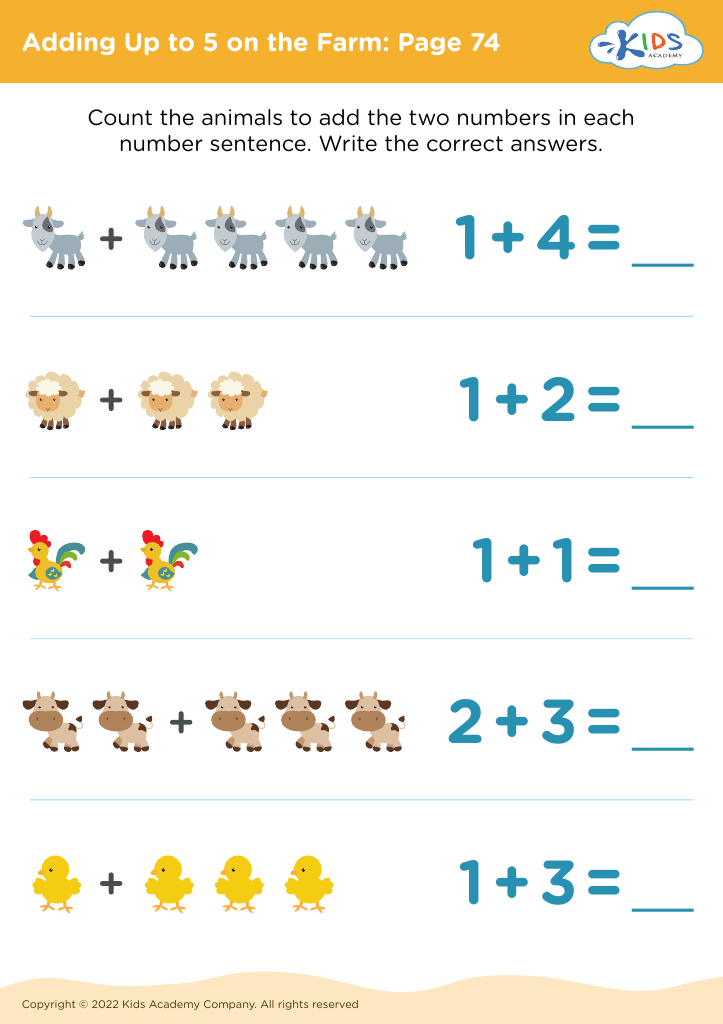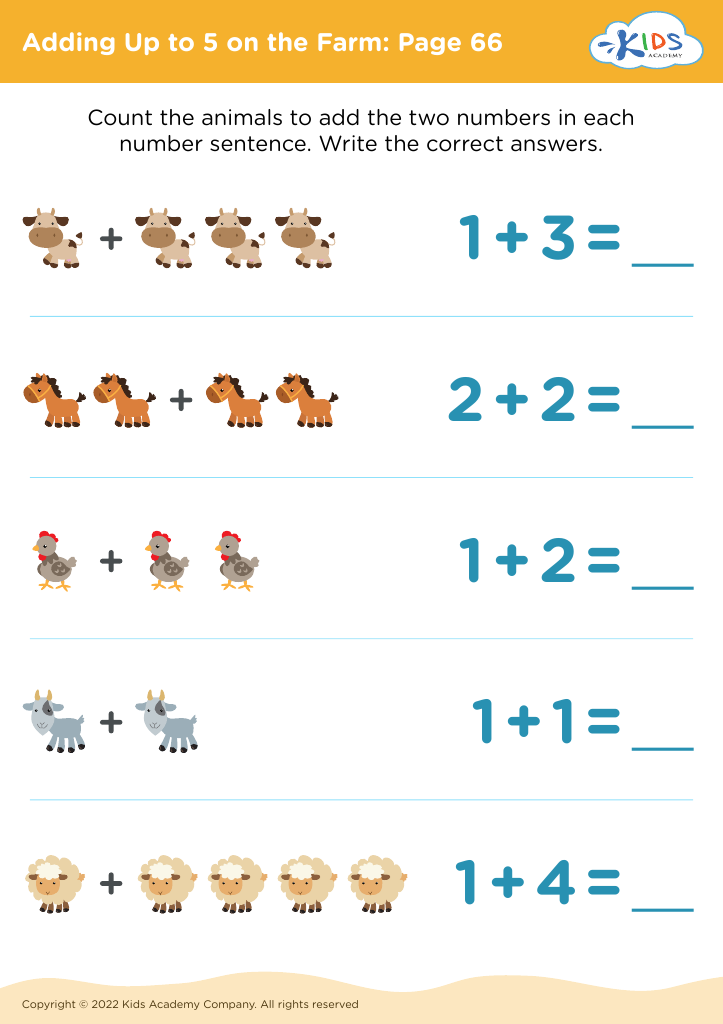Basic Addition Skills Addition & Subtraction Worksheets for Ages 3-5
253 filtered results
-
From - To
Welcome to our Basic Addition & Subtraction Worksheets page, designed specifically for children ages 3-5! This engaging collection of worksheets helps young learners build foundational math skills through fun activities. Our colorful and interactive resources introduce essential addition and subtraction concepts, ensuring a solid grasp of numbers while keeping children entertained. Each worksheet incorporates vibrant illustrations and age-appropriate exercises, making math enjoyable and stress-free. Foster your child's early mathematical abilities and boost their confidence with our thoughtfully crafted worksheets. Explore our assortment today, and watch as your little ones develop a love for learning and a strong foundation in basic math skills!
Basic addition and subtraction skills are foundational for early childhood development and set the stage for a child's future academic success. For children aged 3-5, understanding these concepts not only enhances numerical skills but also promotes cognitive development, critical thinking, and problem-solving abilities. Early math skills are closely linked to later success in mathematics, which is a cornerstone for subjects like science and technology. This knowledge builds confidence, enabling children to approach complex problems with a positive attitude.
Moreover, engaging children in activities that promote basic addition and subtraction enhances their social skills. Participating in group activities like counting games or sharing objects teaches collaboration, communication, and turn-taking—essential life skills. Parents and teachers can incorporate these concepts into daily routines through playful interaction, using everyday scenarios reinforcing math learning in a fun way.
Additionally, grasping addition and subtraction lays the groundwork for financial literacy in the future. By fostering these skills early, children will develop a more profound understanding of numbers, calculations, and logical reasoning, equipping them for academic challenges ahead. Therefore, investing effort in teaching these fundamental skills today has lasting benefits, encouraging a love for learning that extends beyond mathematics into all other facets of education.
